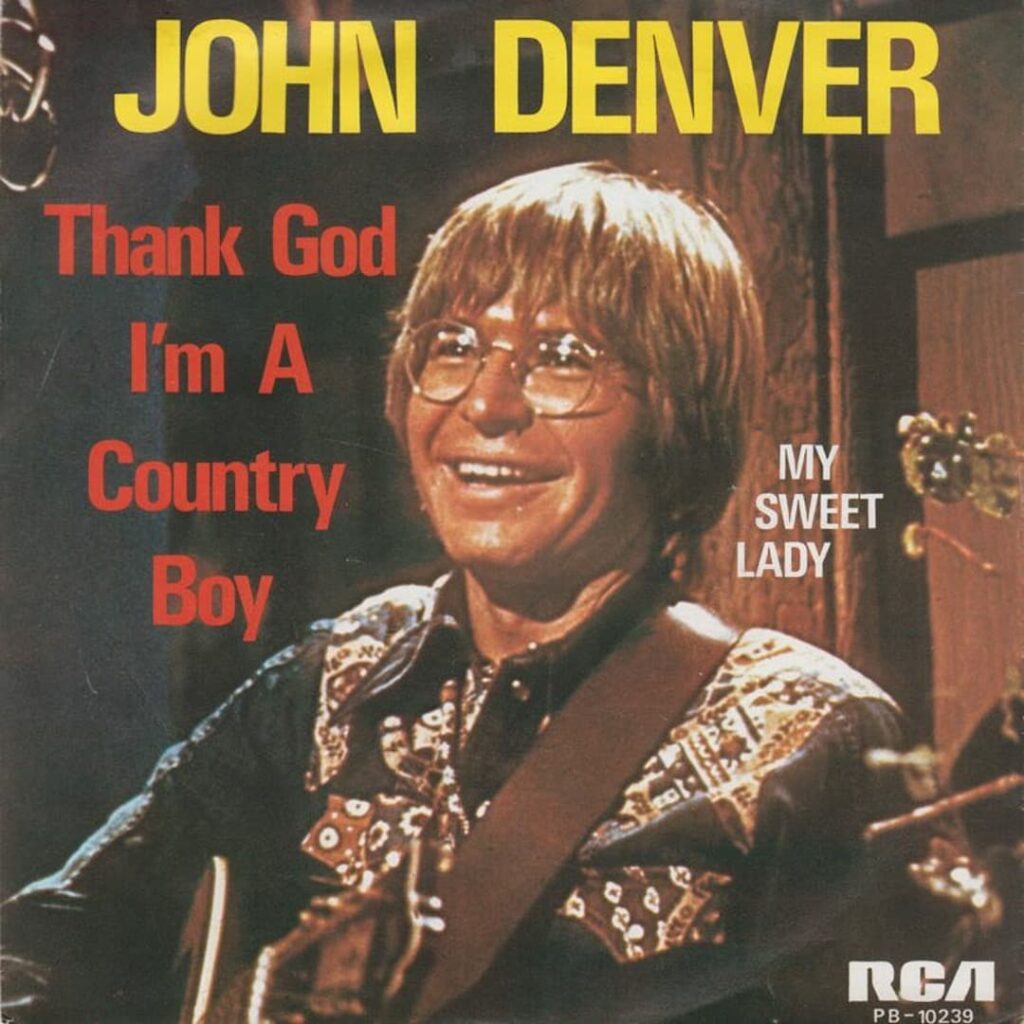
A Heartfelt Ode to Simple Pleasures and Rural Life
Let’s take a deep breath and escape the hustle and bustle of city life, if only for a few moments, and transport ourselves to a place where the air is clean, the stars shine bright, and the rhythm of life moves to the gentle sway of nature. Few artists could evoke such an idyllic picture with as much authenticity and warmth as John Denver. His songs were more than just melodies; they were invitations to appreciate the beauty of the natural world and the simple joys of an uncomplicated existence. Today, we’re returning to one of his most quintessential and beloved anthems, a joyful celebration of down-to-earth living: “Thank God I’m a Country Boy.”
“Thank God I’m a Country Boy” was released in 1974 as a track on John Denver’s hugely successful album, “Back Home Again.” While the album itself was a massive hit, reaching number one on both the Billboard Top Country Albums chart and the Billboard 200, it was a live version of the song, released as a single in 1975, that truly captured the nation’s heart. This live version, recorded at the Universal Amphitheatre in Universal City, California, soared to the top of the charts, hitting number one on both the Billboard Hot Country Singles chart and the Billboard Hot 100 pop chart. Its dual chart-topping success solidified John Denver’s status as a crossover phenomenon, beloved by both country and pop audiences. The single’s widespread appeal underscored a growing desire for simpler themes and a connection to nature amidst the complexities of the mid-1970s.
The story behind “Thank God I’m a Country Boy” is deeply rooted in the experiences and philosophy of its songwriter, John Martin Sommers, a member of John Denver’s band. Sommers reportedly wrote the song while traveling with Denver, reflecting on his own upbringing and the stark contrast between the fast-paced life of a touring musician and the grounded tranquility of rural existence. He channeled this sentiment into the song, emphasizing the peace and satisfaction found in manual labor, family, and the rhythms of the land. When John Denver chose to include it on his album and, particularly, when he decided to release the live version, it was a perfect fit for his own public persona and deeply held beliefs about the environment and living simply. The spontaneous energy of the live recording, complete with the audience’s cheers and the lively fiddle and banjo, perfectly captured the song’s joyful spirit and authentic country roots, making it an instant classic that felt genuinely from the heart.
The meaning of “Thank God I’m a Country Boy” is an unadulterated expression of gratitude for a life connected to the land and its humble traditions. It celebrates the simple pleasures often overlooked in the rush of modern living: the beauty of nature, the satisfaction of honest work, the warmth of family, and the comfort of community. The lyrics paint vivid pictures of fiddle playing, dancing, waking with the sun, and the quiet contentment of being a “good ol’ boy” living a life that feels right and true. It’s a defiant embrace of modesty and authenticity in a world that often values material possessions and fleeting trends. For older listeners, this song strikes a particularly resonant chord. It evokes memories of simpler times, perhaps a childhood spent in rural settings, or a longing for an escape from urban complexities to a place where values are clear and life feels more purposeful. It reminds us of the fundamental human need for connection – to the earth, to our roots, and to the values that truly nourish the soul.
Listening to “Thank God I’m a Country Boy” today, especially the live version, it’s impossible not to feel a surge of pure, uncomplicated joy. The vibrant energy of the fiddle, the driving rhythm of the banjo, and John Denver’s clear, joyful vocals create an irresistible invitation to tap your foot and smile. It’s a song that cuts through cynicism, reminding us to appreciate the blessings in our own lives, no matter how small or seemingly ordinary. It stands as a powerful testament to John Denver’s unique ability to bottle genuine warmth and an appreciation for life’s everyday miracles, making it a timeless anthem for anyone who finds contentment in the simple, enduring truths of the world.